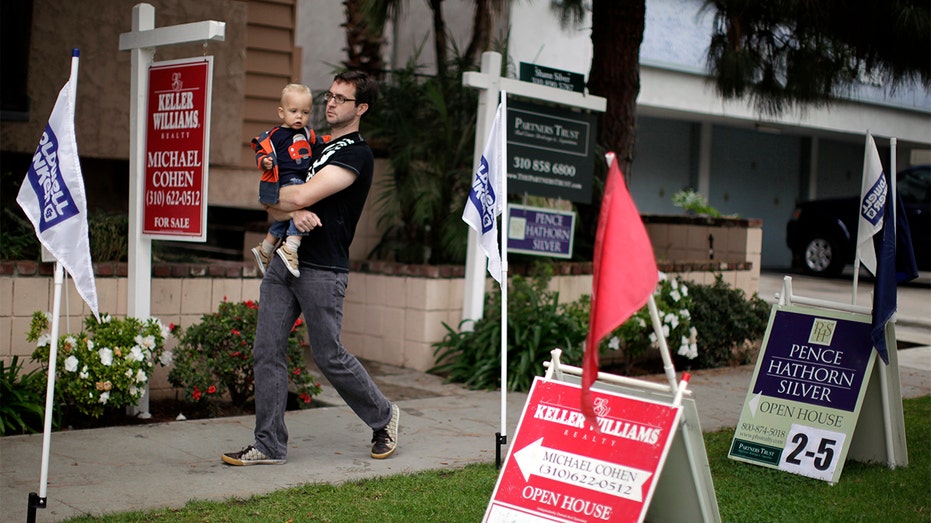Existing home sales rebound, leaving record-low inventory
Economist suggests buyers were motivated to make a deal in anticipation of rising interest rates
Garman Homes founder: It's a tough market right now
Garman Homes founder and CEO Alaina Money Garman discusses the housing market and what homeowners are looking for as the supply chain crisis rages on.
Existing home sales increased by 6.7% in January after a decline the month before, leaving record-low inventory as prices continue to climb, according to the latest data from the National Association of Realtors.

Homes sales rebounded in January, leaving record-low inventory. (AP Photo/Michael Conroy, File / AP Newsroom)
| Ticker | Security | Last | Change | Change % |
|---|---|---|---|---|
| DHI | D.R. HORTON INC. | 156.27 | -1.86 | -1.18% |
| TOL | TOLL BROTHERS INC. | 153.23 | +2.67 | +1.77% |
| LEN | LENNAR CORP. | 114.04 | -1.35 | -1.17% |
Sales of previously occupied homes were up in all regions last month, reaching a seasonally adjusted annual rate of 6.5 million after falling in December. The rebound left a record-low inventory of 860,000 unsold units by the end of January.
"The inventory of homes on the market remains woefully depleted, and in fact is currently at an all-time low," said Lawrence Yun, NAR’s chief economist.
HOUSING INFLATION, SUPPLY CHAIN CREATE BUILDERS' PERFECT STORM
Buyers were also willing to shell out more to make a deal last month, with sales prices surging 15.4% year-over-year to $350,300. Yun points to rising interest rates as the reason behind the trend.

A sale pending sign is displayed outside a residential home for sale in East Derry, New Hampshire. (AP Photo/Charles Krupa, File / AP Newsroom)
"Buyers were likely anticipating further rate increases and locking-in at the low rates, and investors added to overall demand with all-cash offers," he said. "Consequently, housing prices continue to move solidly higher."
FED SIGNALS ‘FASTER’ INTEREST RATE HIKES LIKELY AS INFLATION SOARS TO 40-YEAR HIGH
The average rate for a 30-year fixed-rate mortgage is approaching 4% according to Freddie Mac's latest weekly numbers, reaching 3.96% – a high not seen since May 2019. Rising rates are adding further fuel to the trend of would-be buyers increasingly being priced out of the market at the lower price points.
Last month, the percentage of first-time buyers responsible for sales dropped to 27%, down from 30% in December and down from 33% in January the year before according to the NAR.

A man walks past open house signs in front of condominiums for sale in Santa Monica, California. (REUTERS/Lucy Nicholson / Reuters Photos)
GET FOX BUSINESS ON THE GO BY CLICKING HERE
"There are more listings at the upper end – homes priced above $500,000 – compared to a year ago, which should lead to less hurried decisions by some buyers," Yun explained. "Clearly, more supply is needed at the lower-end of the market in order to achieve more equitable distribution of housing wealth."





















